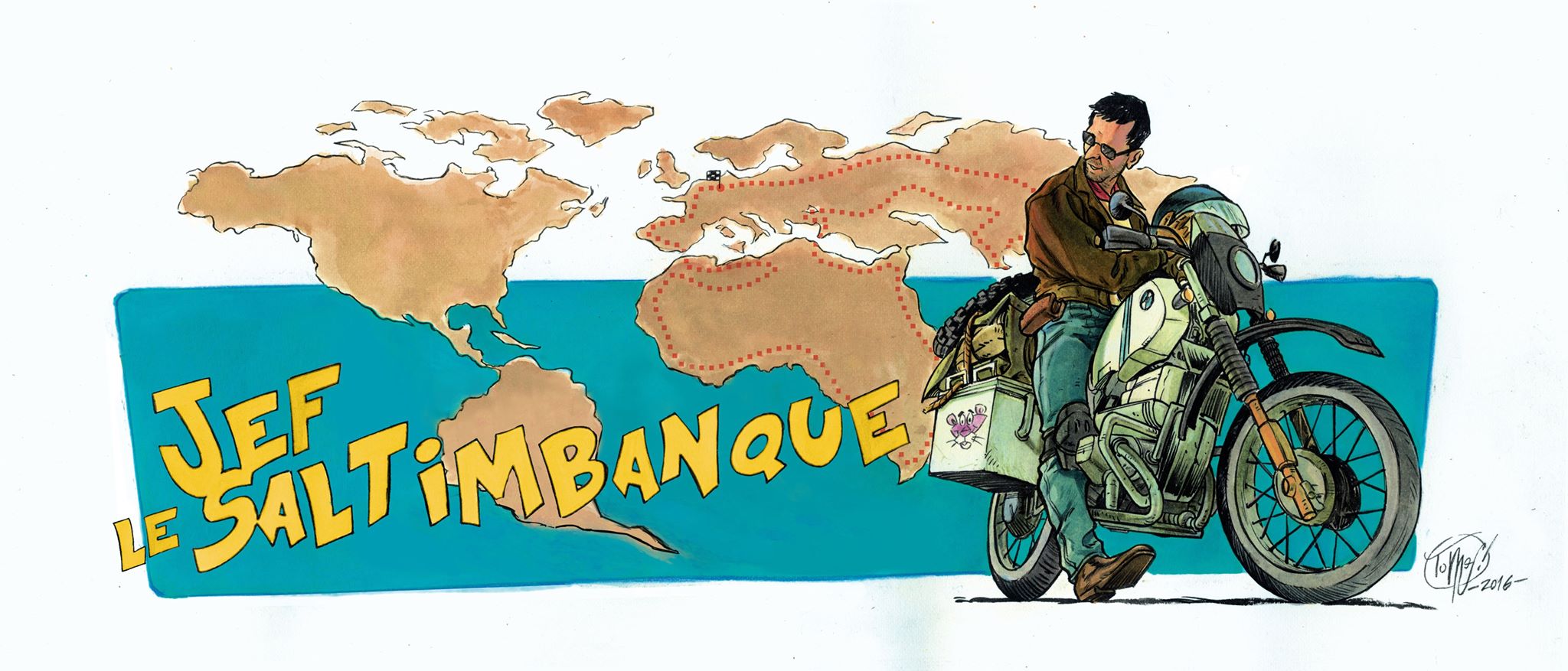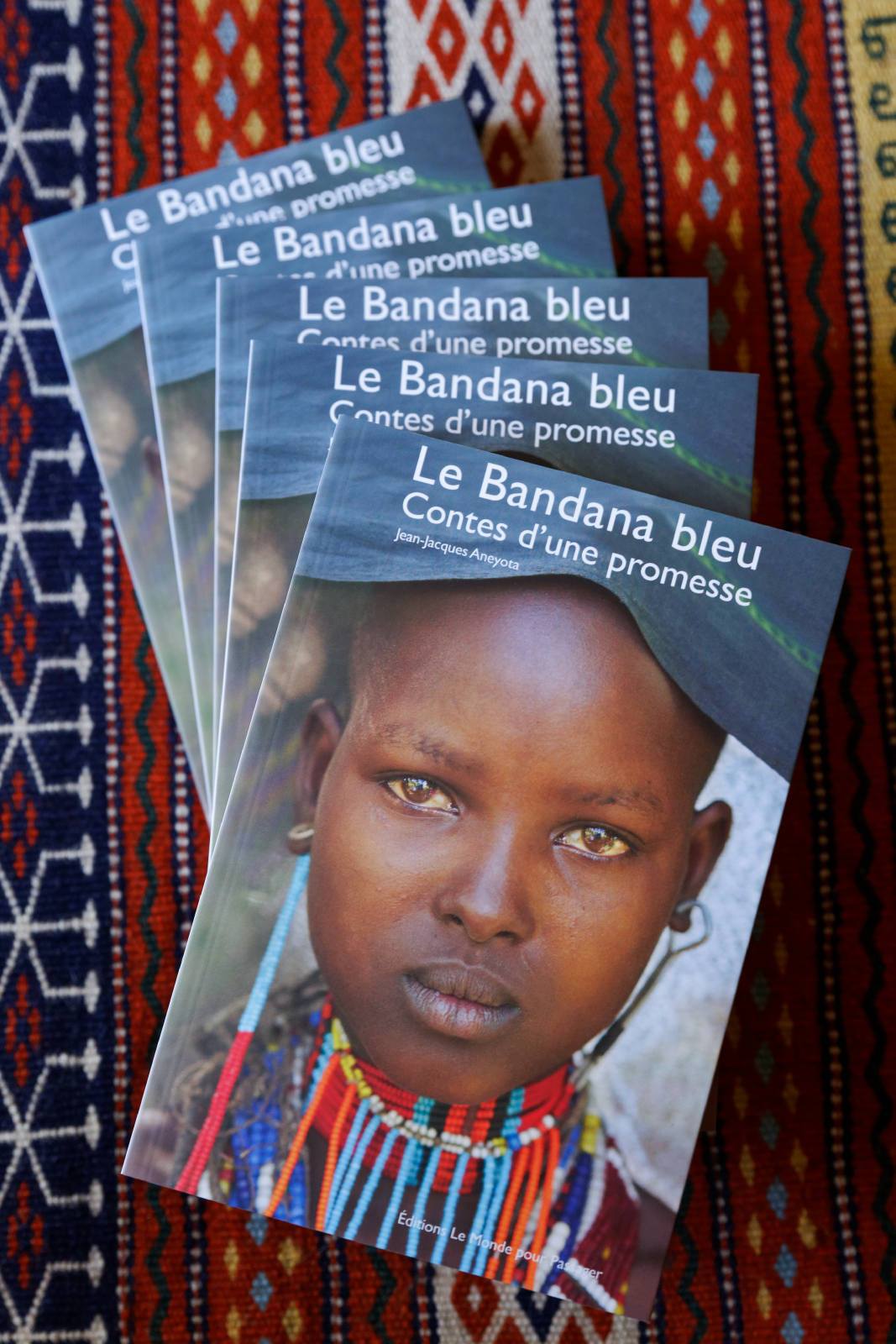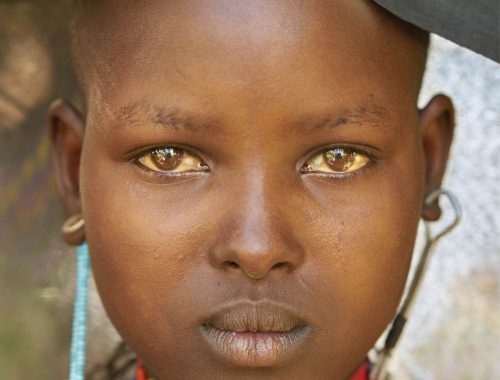Cet article est également disponible en : Français
“What we should do is, always concede to our neighbor that he has a part of truth, not to say that the entire truth is to me, to my country, to my race, to my religion”
Without this simple quote, I would not be about to write this preface.
They are, in fact, the excat words of Amadou Hampate Bâ, noted in a discussion forum of humanitarian workers that have caught my attention, 3 years ago.
This made me realize that I should get in touch with the stranger who quoted back these words. He was called Jean Jacques Aneyota.
Our mutual admiration for this Huge Wise man Amadou Hampâté Bâ was and our love for Africa made us become close friends, first in a virtual world then in real life.
His dream for Africa rose up at the age of 9, thanks to his teacher who lived in Tchad and who talked about this huge continent very often. I was also 9 when my uncle coming back for vacation from Ghana after missionary trip relating all his extraordinary stories about his mission which made me dream.
A few months later Jean Jacques asked to read his manuscript. Then I realized why he was part of the discussion forum where we met. From the first pages his generosity and his humanity is easily shown and this goes on through the entire book.
I have myself spent around ten years in Africa as humanitarian worker, I have to bow before this work, which I found myself in page after page. No matter if you know Africa or not you just have to let yourself go.
This book is not an ordinary travelogue, it is above all a love travel
That one he was madly in love with, is by his side, such an ambassador, all along this geographical journey.
It is only when he reached the Cape of Good Hope that he finally let her go. His story, which made me cry more than once, is the most beautiful love story I have ever read.
Regardingthe geographical journey it is more a testimony than narrative. It is filled with emotion, humanity, sensuality and a deep respect for traditional societies. The transition from laughter to tears occurs without warning. The sense of humor of Jean-Jacques saved him more than once from dangerous situations. He rapidly realized that Africans loved to laugh, just like him.
I am sure that many villagers still remember him crossing by. His magic tricks, his drolleries and his camera, which allowed some of them to see their faces for the first time, all these surely still fill the palavers at the fireside.
Sometimes helpless and unable to alleviate poverty, he plays the role of entertainer to console himself: “I am a traveler. All I can offer them are few moments of escape, a few seconds of smiles. ”
His writing is so vivid that we feel like being at the movies. We are hot with him, we fear for him, we see him fall from his bike again and again, we feel sorry for him, we wonder how he finds the strength to continue, we get discouraged with him. We get attached to his companions who helped him not to let go and to the villagers who gave him a roof and fed him despite their poverty.
He tells us the beauty of African women, their value and importance in a society that is wrongly described as totally patriarchal. The woman’s cliché subject takes a blow and I thank him.
His reflections on African society compared to Western societies, whether of a social or economic perspective, shows us an aspect that a simple traveler does not usually perceive
He concludes with humor and wisdom: “As in all things, I think the answer is a bit in the middle, at a crossroads, a pinch of Westernization for Africans and a spoonful of Africanization for Westerners. »
If you are not a lover of Africa, you will certainly become after reading this story. It will excite the spirit of nomad in each and every person.
But you have to keep in mind that Africa is not easy for the traveler, “Africa is a rough continent”, one must deserve it particularly now more than ever, taking into account the precarious security which increases each day. We have to choose the route very carefully.
Jean-Jacques went through periods of discouragement without ever playing the big shots. He confesses humbly: “A profound weariness came over me. This adventure is too hard for me. I’m not ready. I am not size.I should have continue dreaming on my sofa. ”
But a little further, he says: “For nothing in the world I would be elsewhere at that moment and an irrepressible joy overcame me. » For this is Africa, with it, no half measures, the continent of extremes.
“I’d so much love being part of this normality”he writes, recalling the period when he listened to the sounds of the street at the bedside of his love dying in a Parisian hospital. [1]
Jean-Jacques knows very well that he is wrong, he is not part of the norm, he has never had an ordinary life, even his childhood was not. For him, as for many others, it is the pursuit of a dream that has made him what he is. His journey changed his life, it left an indelible mark in him. He now lives in Paris, almost African, surrounded by Africans and travelers and is preparing a new dream.
Élisabeth CARRIER
After a first experience with the Amerindians and Inuit of Canada’s Far North as a nurse, Élisabeth Carrier worked for the International Committee of the Red Cross (ICRC) for 30 years. During dozens of missions, she has been able to help victims of conflicts or natural disasters, whether in Africa, Asia, the Middle East, Europe or America.
She is the author of “Between Laughter and Tears” and more recently, “In Mission”. She has received several honors including two honorary doctorates and has been named an Officer of the Order of Canada.
[1] The author takes us back in time throughout his journey to tell us his love story.




No Comments